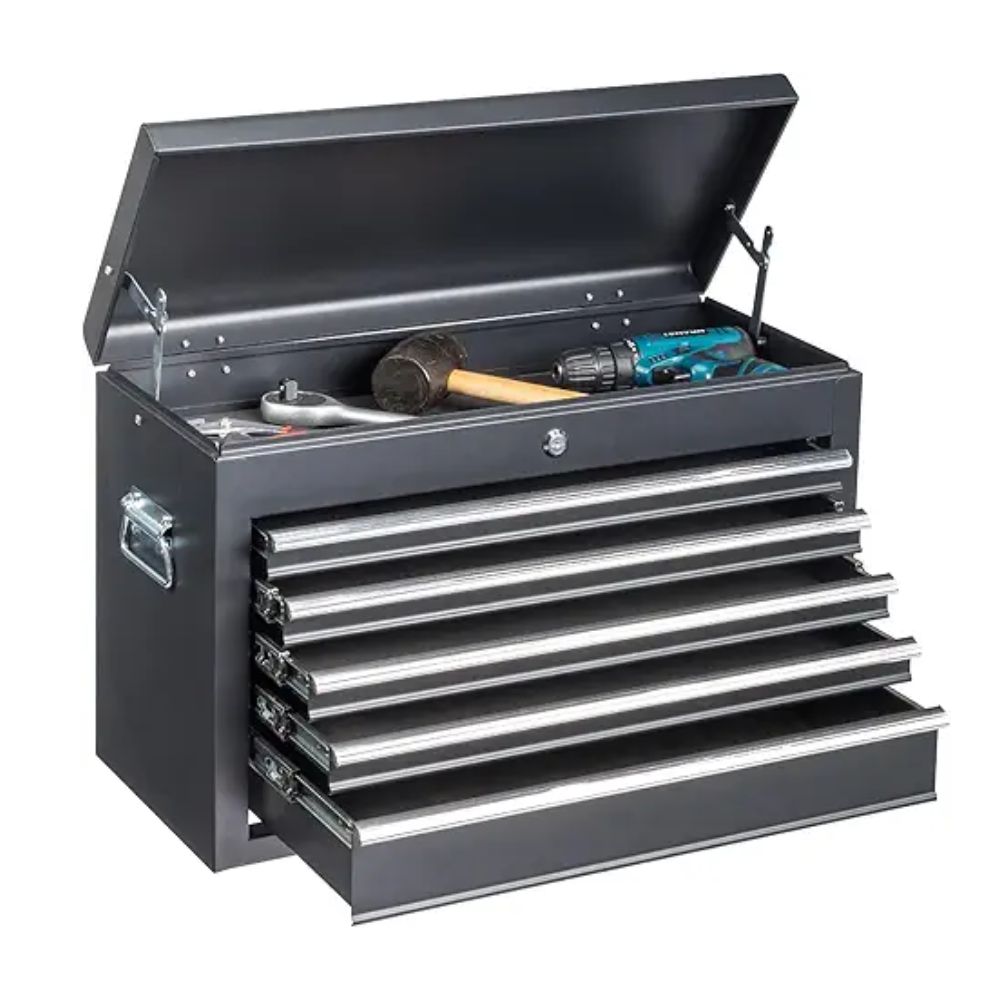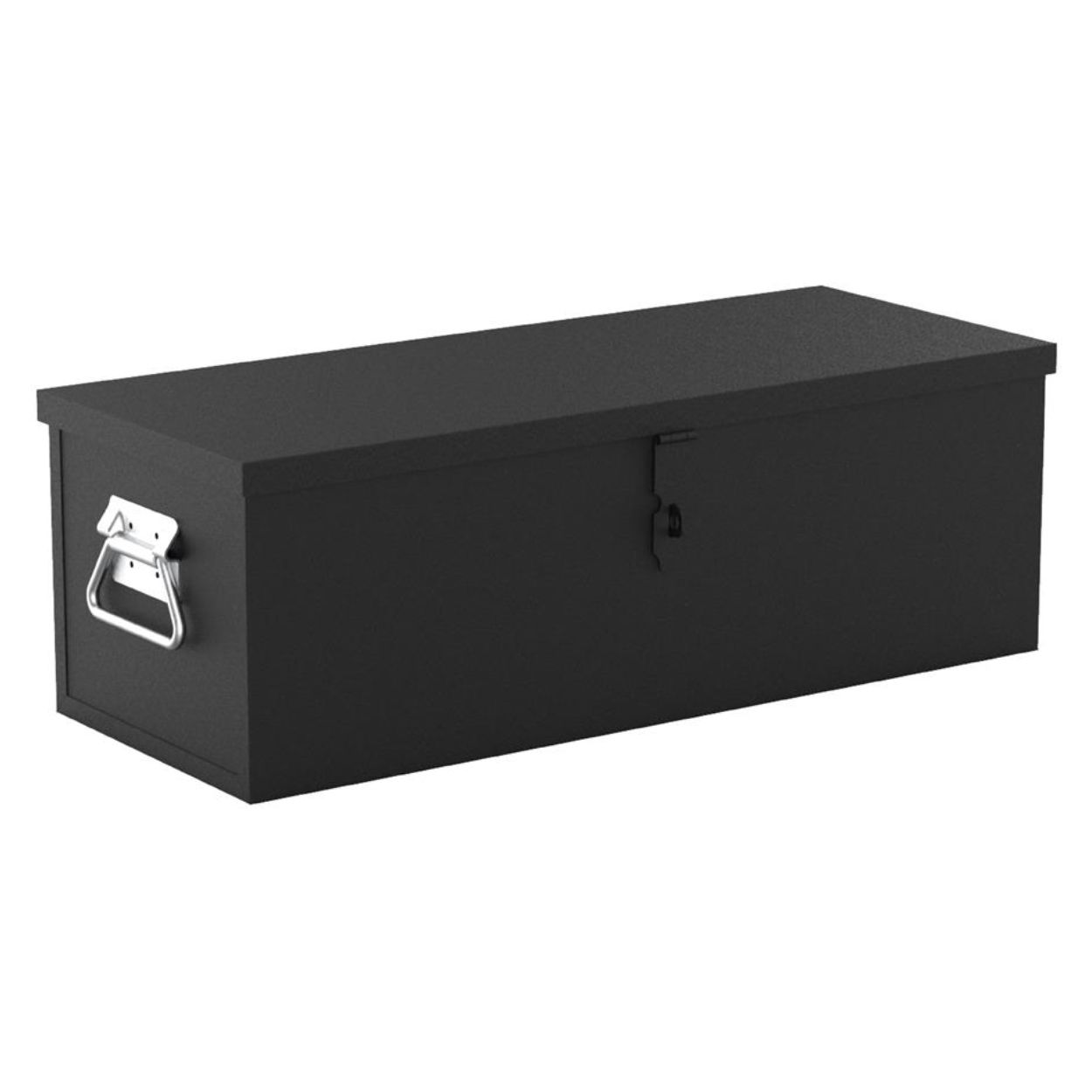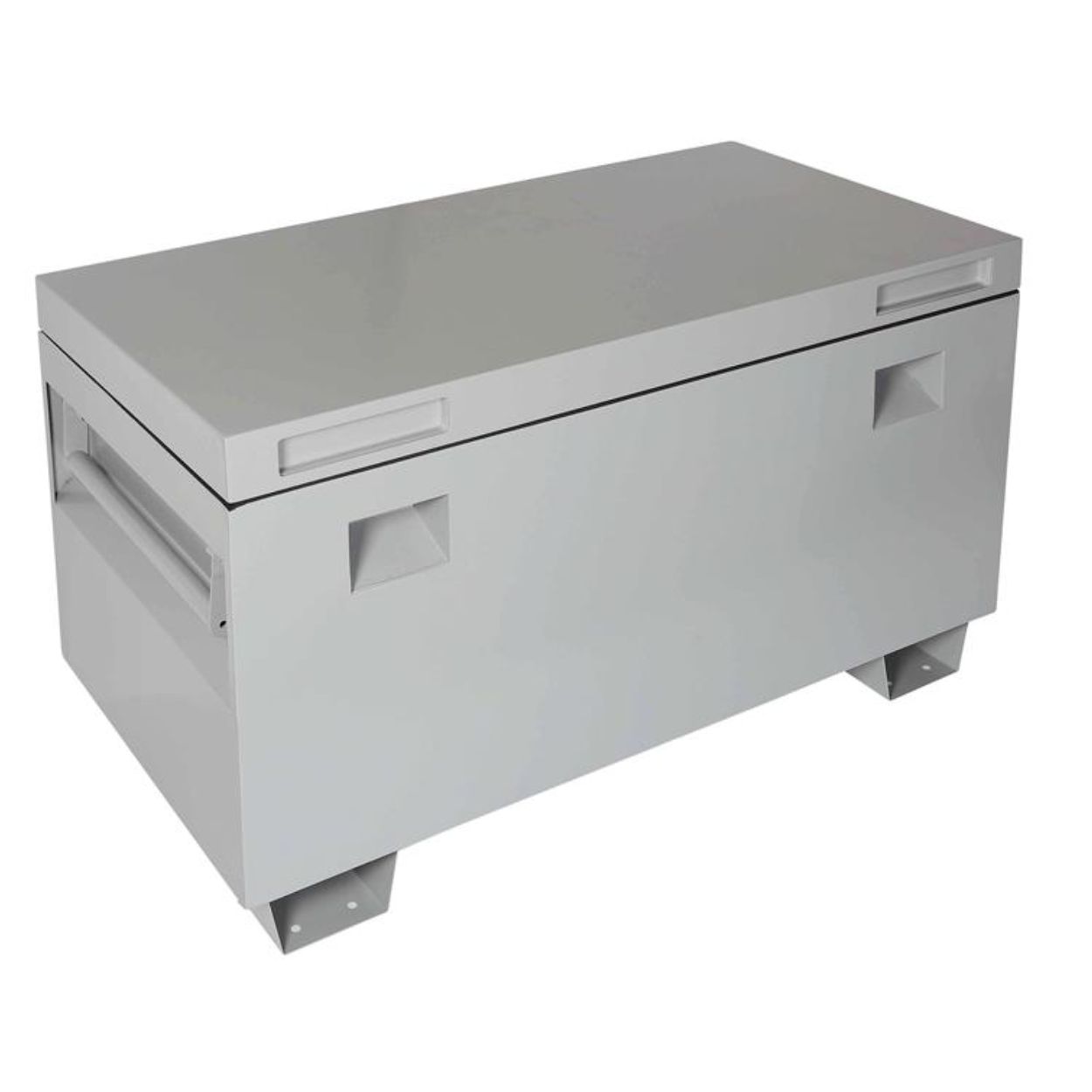Tool Boxes
A good toolbox keeps everything safe and organized, boosting your efficiency. We’ll help you pick the perfect one for your needs.
What Size Tool Box Do I Really Need?
Choosing the right size toolbox is like picking the perfect backpack for school – too small, and you’ll be struggling to cram everything in; too big, and you’ll be lugging around unnecessary weight. Think about the tools you currently have and the tools you plan on getting in the future. Do you mostly use hand tools like screwdrivers, hammers, and wrenches? Or do you have larger power tools, like drills, saws, or impact drivers? Making a list of your essential tools can really help you visualize your storage needs. Remember, it’s always better to have a little extra space than to find yourself struggling to fit everything in later on.
Consider your workspace too. Do you have a dedicated garage or workshop, or do you need to store your tools in a closet or under a bed? If space is limited, a smaller, portable toolbox might be the best option. If you have a larger shop area, then you can consider a bigger tool chest, cabinet, or even a complete workbench system. Think about how you work as well. Do you typically work in one location, or do you move around a lot? If you need to take your tools on the go, then portability will be a key factor. A good starting point for many is a mid-sized tool box or a smaller portable option, and then adding more storage as their tool collection grows.

Related Products
Portable Tool Boxes: Your On-the-Go Tool Storage Solution
Portable toolboxes are the go-to choice for anyone who needs to take their tools on the move. Think of electricians, plumbers, HVAC technicians, or even just someone who likes to help friends and family with projects around the house. These toolboxes are typically made from lightweight yet durable materials like plastic or aluminum, making them easy to carry without sacrificing strength. Many portable tool boxes feature sturdy handles, locking latches, and even built-in organizers for smaller parts and accessories. Having your essential tools organized and readily available can save time and make any job go much more smoothly.
There are many different styles of portable tool boxes available, from small handheld carriers to larger totes with multiple compartments. Some have removable trays to help separate different types of tools, while others have built-in dividers or small parts organizers. When choosing a portable toolbox, consider the type of tools you’ll be carrying and how much weight you’re comfortable lifting. Also, think about the environment you’ll be working in. If you’re working outdoors, you might want to consider a weather-resistant toolbox that will protect your tools from the elements. After all, your tools are an investment, and protecting them properly extends their lifespan.
Rolling Tool Boxes and Carts: Mobility Meets Capacity
Sometimes, you need to bring a larger collection of tools to the job site, but carrying a heavy toolbox isn’t practical. That’s where rolling tool boxes and carts come in! These are essentially portable toolboxes on wheels, offering a great balance between mobility and capacity. Rolling tool boxes usually have larger storage compartments than traditional portable toolboxes, allowing you to store more tools and equipment, and even larger items. They’re perfect for mechanics, contractors, or anyone who needs to transport a significant number of tools around their workspace or to different job locations.
Rolling tool boxes come in various configurations, from simple tool carts with a single storage area to more complex systems with multiple drawers and compartments. Many rolling tool boxes feature heavy-duty wheels that can handle rough terrain, as well as locking mechanisms to keep the drawers and doors securely closed during transport. Some even have built-in work surfaces, giving you a convenient place to work on smaller projects. A mobile workstation can dramatically increase efficiency when tackling tasks that require various tools.
Tool Chests and Cabinets: The Heavy-Duty Champions
For serious DIYers, mechanics, and professional tradespeople, tool chests and cabinets are the ultimate storage solution. These are typically larger, heavier units designed for stationary use in a garage, workshop, or shop setting. Tool chests often sit on top of rolling tool cabinets, creating a comprehensive storage system with ample space for all your tools and equipment. They’re built to last, constructed from heavy-gauge steel with reinforced corners and a durable powder-coated finish. A robust tool cabinet is an investment in organization and the long-term care of your valuable tools.
Tool chests and cabinets offer a wide range of features, including multiple drawers with ball-bearing slides for smooth operation, locking systems for security, and various organizational accessories. You’ll find options ranging from basic models with a few drawers to high-end professional series chests with 12-drawer or even 17-drawer configurations! Many manufacturers offer matching pieces to expand your storage capacity as needed, allowing you to create a customized setup that perfectly fits your workspace and tool collection. Having dedicated space for every tool helps to create a professional and well-maintained work area.
Exploring the Pro Series: What Makes a Toolbox “Professional Grade?”
When you see a toolbox labeled “Pro Series,” it means you’re stepping up to a higher level of quality and performance. Professional grade toolboxes are designed for heavy use in demanding environments and are built to withstand the rigors of daily wear and tear. They typically feature thicker steel construction, heavier-duty drawer slides that can support more weight, and reinforced frames for added stability. These toolboxes are built to last, and many come with lifetime warranties – a testament to their durability. Professionals rely on their tools to make a living, so they need tool storage that won’t let them down.
Pro series toolboxes often include features that enhance organization and efficiency, such as larger drawer sizes to accommodate bulkier tools, integrated power strips and lighting, and customizable drawer dividers to keep everything in its place. You’ll find locking mechanisms are more robust, providing better security for valuable tools. Many professional grade toolboxes also come with premium finishes that resist scratches, dents, and corrosion. While they may cost more upfront, the longevity and reliability of a pro series toolbox make it a worthwhile investment for anyone who relies on their tools day in and day out.
Beyond Basic Storage: Hutches, Workbenches and Specialized Tool Storage
While toolboxes, chests, and cabinets are the foundation of any good tool storage system, there are other options to consider for maximizing your workspace and organizing specific types of tools. Hutches are add-on units that sit on top of tool chests, providing additional storage space for smaller items, manuals, and frequently used tools. They often include pegboards or magnetic panels for hanging tools, as well as power outlets and lighting for added convenience. A hutch can transform a basic tool chest into a complete workstation.
Workbenches with integrated tool storage are another great option for creating a dedicated workspace. These typically feature a sturdy work surface, drawers, cabinets, and sometimes even a pegboard or tool wall. They provide a central location for all your tools and equipment, making it easy to work on projects of all sizes. For specialized tools, consider dedicated storage solutions like drill bit organizers, wrench racks, and socket holders. Keeping specific tool types organized and accessible saves time and prevents frustration. A well-designed shop tool storage system greatly enhances efficiency and safety.
Material Matters: Durability and Weather Resistance in Tool Boxes
The material a toolbox is made from plays a big role in its durability, weight, and weather resistance. Steel is the most common material for heavy-duty tool chests and cabinets, offering exceptional strength and resistance to impact. It’s also relatively affordable, making it a popular choice for both professional and DIY use. However, steel can be heavy and prone to rust if not properly maintained. Look for toolboxes with a powder-coated finish, which provides a durable, corrosion-resistant layer of protection.
Aluminum is another popular choice, especially for portable toolboxes. It’s lightweight, strong, and naturally corrosion-resistant, making it ideal for outdoor use. Plastic toolboxes are also lightweight and affordable, but their durability varies depending on the type of plastic used. High-density polyethylene (HDPE) is a durable, impact-resistant plastic that’s often used in portable toolboxes. Some tool boxes are also made from composite materials, which combine the strength of steel with the lightweight properties of aluminum or plastic. Consider your needs and working environment when choosing a toolbox material. For heavy-duty shop use, steel is the best choice, while aluminum or high-quality plastic is better suited for portable toolboxes that need to be transported frequently.
Maximizing Your Tool Storage: Drawer Dividers, Liners, and Accessories
Having a great toolbox is only half the battle. To truly maximize your tool storage, you need to organize the inside as well! Drawer dividers are essential for keeping tools separated and preventing them from rolling around and getting damaged. You can purchase pre-made dividers or create your own using foam, wood, or even cardboard. Drawer liners are another useful accessory, providing a non-slip surface that keeps tools in place and protects the bottom of the drawers from scratches and dents.
There are also many other accessories available to help you organize your tools, such as socket holders, wrench racks, plier organizers, and magnetic tool strips. These accessories can be attached to the inside of your toolbox drawers or mounted on a pegboard or tool wall. Take the time to organize your tools in a way that makes sense to you. Group similar tools together, keep frequently used tools within easy reach, and label drawers and compartments so you can quickly find what you need. An organized tool box not only saves you time but also helps to prevent lost or damaged tools.
Investing in Quality: The Value of a Lifetime Warranty
When it comes to tool storage, investing in quality pays off in the long run. A well-made toolbox will last for years, protecting your valuable tools and keeping your workspace organized. Look for toolboxes made from durable materials, with strong construction and high-quality hardware. Pay attention to details like drawer slides, latches, and locking mechanisms. Ball-bearing drawer slides provide smooth, effortless operation, even when fully loaded. Heavy-duty latches and locks ensure that your tools are secure and protected from theft.
Many reputable toolbox manufacturers offer lifetime warranties on their products, which is a testament to their confidence in their quality and durability. A lifetime warranty gives you peace of mind, knowing that your investment is protected and that the manufacturer stands behind their product. While a high-quality toolbox may cost more upfront, it will save you money in the long run by avoiding the need for frequent replacements and repairs. And consider this – you are protecting the valuable investments you have made in your tools themselves, a high-quality storage solution is a secondary investment that is very worth the money.
Where to Find Your Perfect Toolbox Today: Trusted Retailers and Brands
Now that you know what to look for in a toolbox, it’s time to start shopping! You can find toolboxes at a variety of retailers, from big box home improvement stores to online marketplaces and specialty tool stores. Some of the most trusted brands in tool storage include Craftsman, Husky, Milwaukee, DeWalt, Stanley, and Snap-on. These brands offer a wide range of toolboxes to suit different needs and budgets.
Before making a purchase, compare prices, features, and warranties from different retailers and brands. Read reviews from other customers to get an idea of the quality and durability of different toolboxes. If possible, visit a store to see the toolboxes in person and get a feel for their size and construction. Investing in a high-quality toolbox is an investment in your tools and your productivity. Don’t hesitate to ask sales associates for advice, and be sure to check for sales and promotions. Finding the perfect toolbox today means a more organized workspace tomorrow!
Key Takeaways for Choosing Your Ideal Toolbox
Choosing the right toolbox can seem overwhelming, but by considering your needs, budget, and working environment, you can find the perfect storage solution to keep your tools organized and protected. Here are some key takeaways to remember:
Assess your tool collection: Determine the size and type of tools you need to store.
Consider portability: Decide if you need a portable toolbox, a rolling cart, or a stationary chest and cabinet system.
Prioritize quality: Look for toolboxes made from durable materials with strong construction and a lifetime warranty if possible.
Maximize organization: Use drawer dividers, liners, and accessories to keep your tools organized and accessible.
Think about your workspace: Choose a toolbox that fits your available space and working style.
Invest wisely: A high-quality toolbox is an investment that will protect your tools and improve your productivity for years to come.
By following these guidelines, you can confidently choose the perfect toolbox to suit your needs and enjoy a more organized and efficient workspace. Happy tooling!
Looking For The Leading Tool Boxes Manufacturers?
Keep in Touch
Contact Info
Address
1st F, A block, Yongjiang Industrial Park, Ningbo, Zhejiang, China
Call Us
+86 180 5858 6702


